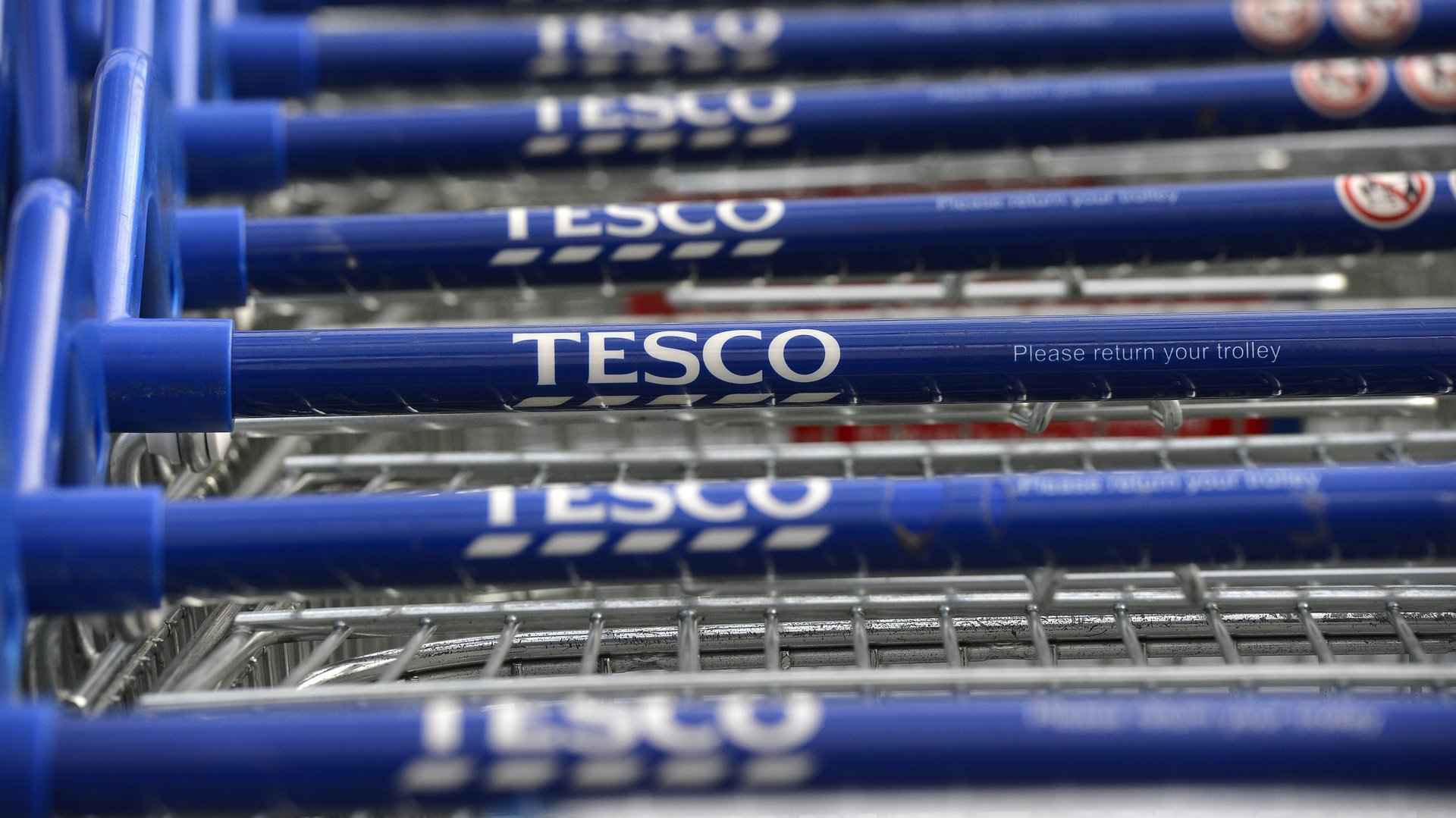Tesco’s sales are soaring, but so are its coronavirus-related costs
Grocery sales in the UK are now at record highs, due to the coronavirus pandemic. And Britain’s biggest retailer Tesco has seen a more-than-healthy sales rise—but, looking at the company’s balance sheet, that success might not be obvious.


Grocery sales in the UK are now at record highs, due to the coronavirus pandemic. And Britain’s biggest retailer Tesco has seen a more-than-healthy sales rise—but, looking at the company’s balance sheet, that success might not be obvious.
Tesco posted a respectable £2.96 billion in annual profit today, up 13.5% from the prior year. Cash flow is also up, some 132% to £2.1 billion. But the pandemic is also costing the company huge amounts of money, so these funds might be needed soon.
“The market was flat, subdued, if you like, coming into the end of our year in the 1st of January, February period. And then we saw a phenomenal spike,” said executive director Dave Lewis during the post-earnings call. “We’re talking about a 50% increase in food sales, about a 30% increase in sales for Tesco across those peak weeks.”
The company attributes that surge to shoppers stockpiling food and supplies before the UK rolled out a lockdown on March 23, with just 10% of customers making up 30% of sales volume in that period. “Be it big beans, be it peas, be it toilet rolls, so on and so forth, some phenomenal increases against the typical week,” Lewis said.
Grocery businesses remain in a state of major flux during the pandemic. Take for instance the disruption to Tesco’s workforce. The company said it has recruited an additional 45,000 in-store workers—but an even larger number, 50,000, are currently absent—at a total payroll cost of up to £405 million.
The costs of paying those handling distribution could also run up to an additional £175 million. Meanwhile, other in-store expenses are climbing, such as the costs associated with cleaning and sanitization.
Relief from the government in terms of business rates will help offset costs by an estimated £585 million. But the company expects the coronavirus tab to run between £650-£925 million this year, even accounting for the assistance the government is offering businesses.
Still, executives remain somewhat upbeat about the year ahead. If “customer behavior were to return to normal by August, it is likely that the additional cost headwinds incurred in our retail operations would be largely offset by the benefits of food volume increases, twelve months’ business rates relief in the UK, and prudent operations management,” Tesco said today.